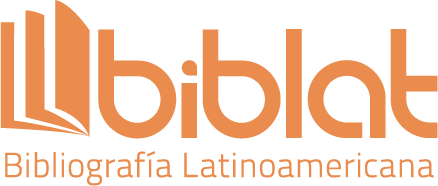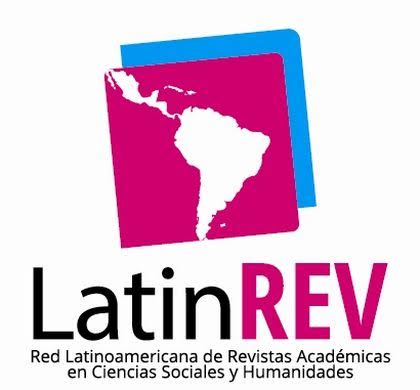Teacher Commitment and Social Responsibility
Professional Teaching Ethics in Initial Teacher Education
DOI:
https://doi.org/10.32870/punto.v11i20.256Keywords:
professional ethics, initial teacher education, ethical values, social responsibility, teacher commitmentAbstract
Professional ethics is essential in teacher education, as it influences future teacher’s ability to address ethical dilemmas and ensure quality education. This study analyzed professional values, ethical attributes, and attitudes toward teaching among Early Childhood and Primary Education students in Andalusia. A quantitative approach was employed, using a descriptive-correlational and ex post facto design. The sample included 816 students, who completed the Teacher Professional Ethics Evaluation Questionnaire. Data were analyzed using JASP , applying descriptive statistics and parametric tests. The results indicate that women exhibit greater ethical sensitivity, while students from urban environments place higher importance on ethics assessment in teaching. These findings highlight the need to strengthen ethical training in higher education, equipping future teachers with the tools to face ethical challenges in the teaching profession.
References
Alonso-Sainz, T. (2021). ¿Qué caracteriza a un "buen docente"? Percepciones de sus protagonistas. Profesorado, Revista De Currículum Y Formación Del Profesorado, 25(2), 165–191. https://doi.org/10.30827/profesorado.v25i2.18445
Baltodano, M.E. (2020). Perspectivas éticas de la docencia universitaria en América Latina: retos y desafíos en el siglo XXI. Revista Educación, 44(2), 1-17. https://doi.org/10.15517/revedu.v44i2.38677
Bolívar, A., & Pérez-García, P. (2022). El compromiso y la ética profesional en el acceso a la docencia. Innovación Educativa, (32). https://doi.org/10.15304/ie.32.8699
Buxarrais, R. (2021). Teacher’s Ethos and Moral and Professional Identity. In F. Oser, K. Heinrichs, J. Bauer, & T. Lovat (eds). The International Handbook of Teacher Ethos (pp. 125-143). Switzerland: Springer.
Conklin, H. G., & Hughes, H. E. (2016). Practices of Compassionate, Critical, Justice-Oriented Teacher Education. Journal of Teacher Education, 67(1), 47-60.
Day, C. (2018). Educadores comprometidos. Qué son, qué hacen, por qué lo hacen y lo que verdaderamente importa. Madrid: Narcea.
Escalona, I. de C., & Fumero, A. (2021). Sistematización de los resultados científicos en la formación de docentes para la primera infancia. Sociedad & Tecnología, 4(2), 123–137. https://doi.org/10.51247/st.v4i2.100
Guerriero, S. (ed.) (2017) Pedagogical Knowledge and the changing Nature of the Teaching Profession. París: OCDE.
Heinrichs, K., Ziegler, S. & Warwas, J. (2021). Teacher Ethos as Intention to Implement Appreciation in Teacher-Student Relations: A Closer Look at Underlying Values and Behavioral Indicators. In F. Oser, K. Heinrichs, J. Bauer, & T. Lovat (eds). The International Handbook of Teacher Ethos (pp. 237-261). Switzerland: Springer.
Jarauta, B. (2017). La construcción del conocimiento práctico en la formación inicial de maestros y maestras en las universidades españolas. En T. Colén. (coord. y ed.). Retos y certezas sobre la construcción del conocimiento práctico en la formación de maestros (pp.93-98). Barcelona: Octaedro.
Maxwell, B., y Schwimmer, M. (2016). Professional ethics education for future teachers: A narrative review of the scholarly writings. Journal of Moral Education, 45(3), 354–371. https://doi.org/10.1080/03057240.2016.1204271
Maxwell, B., Boon, H., Tanchuk, N. y Rauwerda, B. (2020): Adaptation and validation of a test of ethical sensitivity in teaching, Journal of Moral Education, 50:3, 267–292, https://doi.org/:10.1080/03057240.2020.1781070
OECD (2017). Do new teachers feel prepared for teaching? Teaching in Focus, 17. OECD Publ. http://dx.doi.org/10.1787/980bf07d-en.
OCED (2019), “The role of initial teacher preparation” in A Flying Start Improving Initial Teacher Preparation Systems, OECD Publishing, Paris, https://doi.org/10.1787/cf74e549-en
Oser, F., Heinrichs, K., Bauer, J., & Lovat, T. (eds). (2021). The International Handbook of Teacher Ethos. Switzerland: Springer.
Klassen, R. & Kim, L. (2019). Selecting teachers and prospective teachers: A meta-analysis. Educational Research Review, 26, 32-51. https://doi.org/10.1016/j.edurev.2018.12.003
Torquemada, A. D., & Loredo, J. (2021). Validación de un Cuestionario de Evaluación de la Ética Profesional Docente Universitaria. Revista Iberoamericana De Evaluación Educativa, 14(1), 101–114. https://doi.org/10.15366/riee2021.14.1.006
UNESCO (2017). Educación para los Objetivos de Desarrollo Sostenible. Organización de las Naciones Unidas para la Educación, la Ciencia y la Cultura. París. https://unesdoc.unesco.org/ark:/48223/pf0000252423
UNESCO (2021). Reimaginar juntos nuestros futuros: Un nuevo contrato social para la educación. Informe de la Comisión internacional sobre los futuros de la educación. Disponible en: https://unesdoc.unesco.org/ark:/48223/pf0000379381_spa
Vaillant, D. y Marcelo, C. (2021). Formación inicial del profesorado: Modelo actual y llaves para el cambio. REICE. Revista Iberoamericana sobre Calidad, Eficacia y Cambio en Educación, 19(4), 55-69. https://doi.org/10.15366/reice2021.19.4.003
You, D., Maeda, Y., & Bebeau, M. J. (2011). Gender differences in moral sensitivity: A meta-analysis. Ethics and Behavior, 21(4), 263–282. https://doi.org/10.1080/10508422.2011.585591
Downloads
Published
How to Cite
Issue
Section
License
Copyright (c) 2025 Juan Miguel Salazar Partida, Mónica Márquez Pinedo, Gabriel Solano Pérez, Antonio Burgos García

This work is licensed under a Creative Commons Attribution-NonCommercial 4.0 International License.
Los autores/as que publiquen en esta revista aceptan las siguientes condiciones:
De acuerdo con la legislación de derechos de autor, Punto Cunorte reconoce y respeta el derecho moral de los autores, así como la titularidad del derecho patrimonial. Bajo la iniciativa de Budapest de acceso abierto, el autor otorga derechos conexos a la Universidad de Guadalajara, al Centro Universitario del Norte y a la revista Punto Cunorte para su difusión en acceso abierto. Punto Cunorte no realiza cargos a los autores por enviar y procesar artículos para su publicación.
Los autores/as pueden realizar otros acuerdos contractuales independientes y adicionales para la distribución no exclusiva de la versión del artículo publicado en Punto Cunorte (por ejemplo incluirlo en un repositorio institucional o publicarlo en un libro) siempre que indiquen claramente que el trabajo se publicó por primera vez en Punto Cunorte.
Esta obra está bajo una Licencia Creative Commons Atribución-NoComercial 4.0 Internacional.









